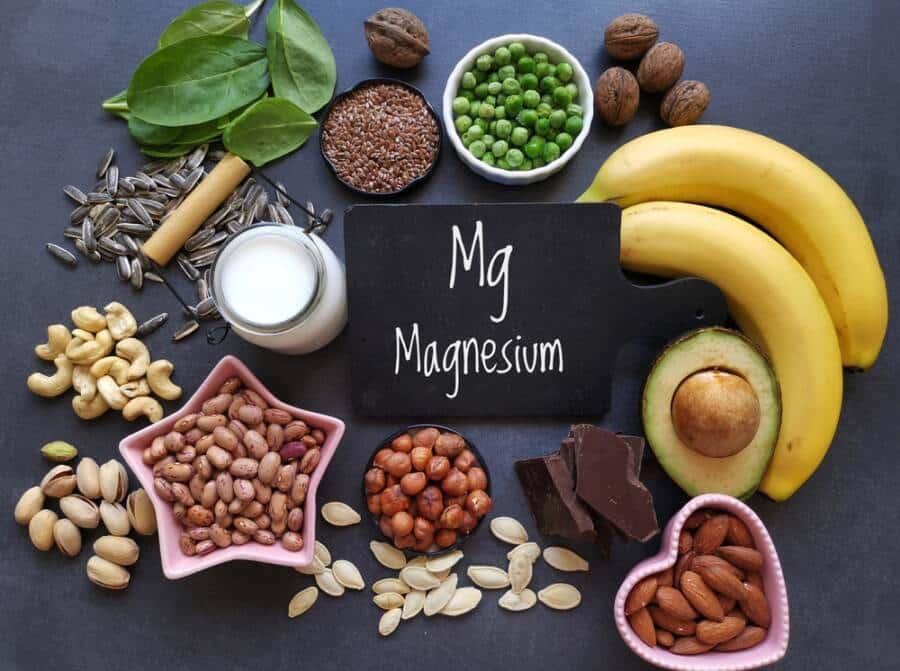Headline: Bye-Bye Brain Fog: Easy Ways to Boost Your Clarity
Brain fog is not a specific medical condition but a set of symptoms, including memory issues, trouble concentrating, feelings of mental cloudiness, and low energy. Most of the time, nutrient deficiencies are a major culprit, and this is why supplements could be a helpful way to improve focus and clarity.
There are people dealing with certain health conditions such as long COVID, Hashimoto’s thyroiditis, fibromyalgia, chronic fatigue syndrome, autism spectrum disorder, depression, celiac disease, or neuropsychiatric issues that are more likely to make you experience brain fog.
Factors such as lacking nutrients can contribute to the foggy feelings. These are deficiencies that are especially common among these conditions linked to brain fog.

Let’s explore in this article some science-supported supplements that can help you clear up brain fog and boost mental sharpness.
1. Vitamin D
This fat-soluble nutrient is necessary for immune system function, brain health, and more.
When you have a low level of vitamin D, you may struggle with cognitive health and contribute to brain fog. This can leave you feeling unfocused, and it is especially common in people with depression and depressive symptoms, such as memory lapses and difficulty concentrating.
People with depression are more likely to have vitamin D deficiencies that can make brain fog even worse. Research shows that low vitamin D levels are linked to an increased risk of developing depression.
The good news is that taking vitamin D supplements can raise your vitamin D levels and may help ease symptoms of depression, including mental health. Boost your mood, reduce negative thoughts, and even help with anxiety and depression.
A study involving 42 postmenopausal women who were low on vitamin D found that those who took 2000 IU of vitamin D daily for a year scored better on memory and learning tests compared to those who took lower or higher doses.
The results are promising, but still there is more research needed to confirm the full effects of Vitamin D on brain fog.
2. Omega-3s are a fuel for your brain
These fatty acids are widely praised for their impressive health benefits, and they are especially good for your brain. When you take concentrated omega-3 supplements, your brain health can be improved, which can lead to easing symptoms of brain fog like memory lapses and trouble focusing.
Studies have shown that omega 3s, specifically eicosapentaenoic acid (EPA) and docosahexaenoic acid (DHA). These can support your cognitive function, including memory, mood, and attention.
A study involving 176 adults with low omega-3 intake found that taking 1.16 grams of DHA daily for 6 months brings significant improvements in both episodic and working memory compared to a placebo.
Another study proved that supplementing 1.25 to 2.5 grams of omega-3s daily helps with memory decline in people dealing with loneliness over four months.
Not only do omega-3 supplements support memory, but they also help boost mood and reduce depressive symptoms, lifting brain fog. A review of 26 studies found that omega-3 supplements with at least 60% EPA content plus a dose of at least 1 gram per day can help with depressive symptoms.
Omega 3s can help relieve anxiety symptoms, often contributing to brain fog. Anxiety can impact concentration, memory, and your whole mood. If you don’t want to have something to do with fish oil, you can try this Plant Based version of Omega-3 that you can find on Amazon.

3. Magnesium—a vital mineral for mental clarity
Magnesium is an essential mineral that is found in foods like seeds, beans, and spinach. It has a crucial role in more body functions, from energy to production and nerve function to regulating blood pressure, as well as supporting enzymatic reactions.
Many people don’t get enough magnesium in their diet, and this can negatively impact brain health and contribute to brain fog, especially if you have difficulties with concentration.
Low magnesium is particularly common in people struggling with stress, and magnesium deficiency can even make stress harder to manage. Stress is a major contributor to memory problems and, at the same time, poor focus and anxiety. It’s important to supplement to improve mental clarity and reduce stress-related brain fog. Low magnesium levels are linked to slower cognitive function and reaction times, as well as a higher risk of cognitive decline.
A study involving 2,466 adults aged 60 and older found that those with higher magnesium levels performed better on cognitive tests like memory and attention, with a lower risk of developing cognitive impairment compared to those with low magnesium levels. Supplementing magnesium may help alleviate symptoms of anxiety and depression, which could reduce brain fog caused by these mental health issues.
4. Vitamin C is more than just immune support
Widely known for boosting immune health, vitamin C is a powerful nutrient that also plays a key role in maintaining brain health.
A study on 80 healthy adults found that sufficient vitamin C levels bring significantly better performance in tests measuring memory, attention, focus, and reaction time compared to people with lower vitamin C levels.
More than the effect on cognitive functions, low vitamin C also affects your mood. Deficiency in vitamin C is linked to both depression and cognitive decline. A study of 139 men shows that a higher vitamin C level is associated with improved mood and lower rates of depression or even confusion. A 2021 study suggests that vitamin C supplementation improved mood in people with subclinical depression, turning it into a boosted cognitive performance and reducing depression-related brain fog.

5. B Complex—the essential vitamin for clear thinking
Studies showed that low or deficient levels of certain B vitamins contribute to brain fog and other issues like memory problems and difficulty focusing.
People with low B vitamin levels alleviate these issues with supplementation, and a study involving 202 people with cognitive impairment and low B12 levels found that B12 supplements improved cognition in 84% of participants and boosted memory and attention in 78% of them.
Low vitamin B12 is linked to poorer attention and memory, and in addition to B12, lower levels of B6 and folate can also make brain fog worse, causing even more trouble with memory or concentration.
High-quality B-complex supplements can be a great way to fill in the nutritional gaps and potentially reduce the risks of brain fog symptoms, being a real help with mental clarity.
6. L-theanine—a great way to calm your mind
This is a compound found primarily in green tea and other plants, and it’s known for its ability to support mental clarity.
Studies suggest that L-theanine supplements can boost mental alertness and improve reaction time while enhancing memory. For example, a study on 69 adults aged 50-69 found that a dose of 100.6 mg of L-theanine improved reaction time and worked on memory cognitive tests.
Moreover, L-theanine is known for its calming effects, and it can help reduce tension, promote relaxation, and improve sleep quality.
A small study found that 200 mg of L-theanine per day helps reduce stress-related symptoms and improves sleep, enhancing aspects of cognitive health when compared to a placebo.
It reduces stress, improves sleep, and supports cognitive health. This is how it can be a powerful tool in easing brain fog.
More ways to tackle brain fog
Brain fog is a result of various factors such as nutrient deficiencies, sleep problems, stress, or underlying medical conditions. If you struggle with memory issues and difficulty in focusing or trouble processing information, it’s wise to consult with a healthcare professional, as they can run tests to determine the root cause of your symptoms.
Other medical conditions like Hashimoto’s thyroiditis, celiac disease, or anxiety disorders often come from brain fog-like symptoms.
Lifestyle plays a significant role in brain fog, as well as poor sleep, a diet full of ultra-processed food, and excessive alcohol; they are all linked to poor memory, concentration struggles, and depressive symptoms.
Working with a healthcare professional to figure out what’s causing your brain fog can help you create a lifestyle plan to address the issues. Changing your lifestyle can make a real difference, and adding some supplements to your routine can help you move on faster from brain fog.
Read next: Clever Ways You Can Use Aloe Vera




